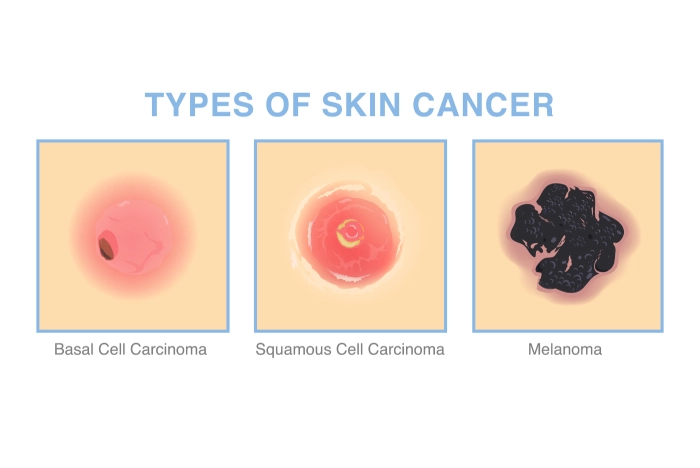Revolutionizing Pathology: Ibex’s AI Solution for Accurate Prostate Cancer Diagnosis
Ibex Medical Analytics, a frontrunner in AI-driven cancer diagnostics, has achieved a significant milestone with the U.S. Food and Drug Administration (FDA) 510(k) clearance for their innovative product, Ibex Prostate Detect. This cutting-edge in vitro diagnostic medical device leverages artificial intelligence to generate heatmaps that identify small and rare prostatic cancers that might otherwise be overlooked. By serving as a safety net, it aids pathologists in ensuring patients receive accurate diagnoses.
Dr. Mahul B. Amin, Vice President and Medical Director of Labcorp’s Hospital Systems Operating Division and a scientific advisor to Ibex, emphasizes the critical nature of this development. He notes that prostate cancer, affecting an estimated one in eight men in their lifetime, is expected to see its global incidence double by 2040. In this context, the precision and efficiency offered by AI-powered pathology in delivering accurate diagnoses become crucial for improving patient outcomes.
Ibex Prostate Detect is a software-only solution that analyzes scanned histopathology whole slide images (WSIs) from prostate core needle biopsies. These images are prepared from hematoxylin & eosin (H&E) stained formalin-fixed paraffin embedded tissue. The system’s primary function is to identify tumors that may have been missed during initial pathologist review. When suspicious tissue is detected, the system provides case- and slide-level alerts, along with a heatmap guiding the pathologist to areas likely containing cancer.
The FDA clearance process involved rigorous precision and clinical validation studies conducted across multiple laboratories in the United States and Europe. These studies demonstrated impressive results, with the system achieving a 99.6% positive predictive value (PPV) for cancer heatmap accuracy. Moreover, it identified a 13% rate of missed cancers in a cohort of consecutive patients initially diagnosed as benign. These missed cancer cases, classified as false negatives, were subsequently verified by expert pathologists, confirming the product’s clinical utility and advantages over the current standard of care.
Joseph Mossel, Chief Executive Officer at Ibex Medical Analytics, views this FDA clearance as a significant milestone in the company’s journey. He emphasizes that this achievement not only validates their commitment to developing clinically proven solutions for improving patient health outcomes but also reinforces their ability to provide cutting-edge innovation to pathologists. Mossel expresses hope that this accomplishment will boost industry-wide confidence in the readiness of AI-powered digital pathology for widespread clinical adoption.
The global increase in cancer incidence is creating heightened demand and diagnostic workloads, further complicated by a worldwide shortage of pathologists. Additionally, the growing complexity of pathologists’ roles due to advancements in precision medicine adds to these challenges. Ibex’s platform addresses these issues by equipping pathologists with AI tools that enhance accuracy and streamline workflows, ensuring that every patient receives an accurate and timely diagnosis. This capability is crucial for guiding treatment decisions and improving survival rates for cancer patients.
The Ibex platform, which includes solutions for prostate, breast, and gastric cancer, is already in routine clinical use globally. These AI-powered tools support cancer detection and other clinically relevant findings, enhancing case review workflows for pathologists. The platform’s solutions have received various certifications and registrations, including CE-IVD certification (under the IVDR framework), UK MHRA registration, TGA approval in Australia, and ANVISA registration in Brazil. While Ibex Prostate Detect is now FDA cleared in the United States, other solutions remain categorized as Research Use Only (RUO) in the country. Ibex has also secured several quality and security certifications, including HITRUST, Cyber Essentials Plus, ISO 27001, and ISO 13485.
Commentary by SuppBase columnist Alice Winters

The FDA clearance of Ibex Medical Analytics’ Prostate Detect represents a significant leap forward in the field of AI-assisted cancer diagnostics. This development is particularly timely given the projected increase in prostate cancer incidence and the ongoing challenges faced by the pathology community.
The system’s impressive performance metrics, including a 99.6% positive predictive value for cancer heatmap accuracy and the ability to identify a 13% rate of missed cancers in initially benign diagnoses, underscore its potential to significantly enhance the accuracy and reliability of prostate cancer diagnoses. This level of precision could lead to earlier detection and intervention, potentially improving patient outcomes and survival rates.
However, it’s crucial to consider the broader implications of integrating AI into medical diagnostics. While the technology shows great promise, there may be concerns about over-reliance on AI systems and the potential for deskilling of human pathologists over time. It will be essential to strike a balance between leveraging AI capabilities and maintaining the critical thinking and expertise of human professionals.
Furthermore, the implementation of such advanced technologies raises questions about healthcare equity. Will this technology be accessible to all healthcare providers, or will it exacerbate existing disparities in healthcare quality between well-funded institutions and those with fewer resources?
Another aspect to consider is the potential for this technology to alleviate some of the pressure on the understaffed pathology field. By streamlining workflows and potentially reducing the time required for accurate diagnoses, it could help address the global shortage of pathologists. However, this also raises questions about the future role of pathologists and how their training and daily practices might evolve in response to these technological advancements.
The clearance of Ibex Prostate Detect also sets a precedent for AI in medical diagnostics, potentially paving the way for similar technologies in other areas of cancer detection and beyond. This could herald a new era in medical diagnostics, where AI becomes an integral part of the diagnostic process across various medical fields.
In conclusion, while the FDA clearance of Ibex Prostate Detect represents a significant advancement in AI-assisted cancer diagnostics, it also opens up a range of considerations for the medical community, healthcare policymakers, and society at large. As we move forward, it will be crucial to carefully monitor the real-world performance of this technology, its impact on patient outcomes, and its broader implications for healthcare delivery and equity.



